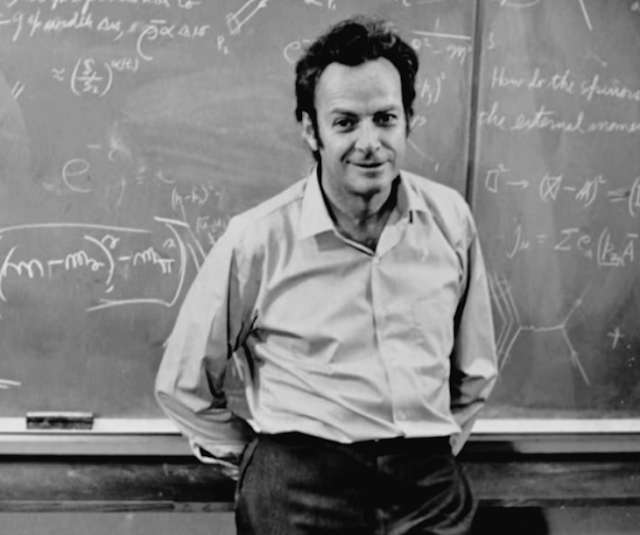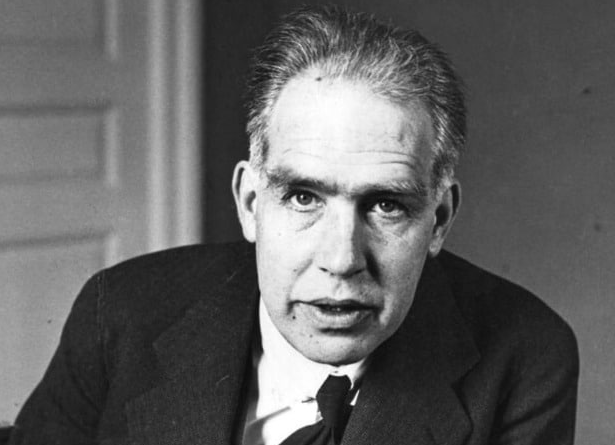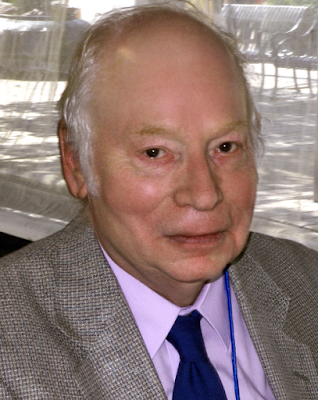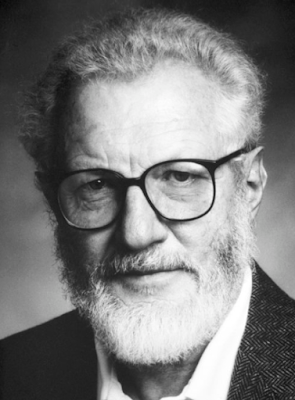
This is the second post from a series of three articles in which religious views of well-known scientists will be listed. The other two pages will outline important believers and agnostics in the field of physics.
Before moving on, a brief note on history: The ideas that are recognized today as atheistic were first documented in ancient India during the Vedic period. The practices of life without religion were codified by various Hindu and Buddhist philosophers.
Richard Feynman
He was a Nobel Prize winning American physicist who's known for his contributions to quantum electrodynamics, as well as computing and nanotechnology. By his early youth, Feynman described himself as an "avowed atheist".

He was once asked in an interview whether he was agnostic or atheist. "I call myself an atheist," Feynman replied, "agnostic for me would be trying to weasel out and sound a little nicer than I am about this."
Feynman went on to say, "It doesn't seem to me that this fantastically marvelous universe, this tremendous range of time and space and different kinds of animals, and all the different planets, and all these atoms with all their motions, and so on, all this complicated thing can merely be a stage so that God can watch human beings struggle for good and evil, which is the view that religion has. The stage is too big for the drama."
Niels Bohr
Prominent Danish physicist best known for his explanation of the emission spectrum of Hydrogen atom. He's also remembered for his contributions to the development of quantum mechanics for which he was awarded Nobel Prize in physics.

Born in Copenhagen in 1885 to well-educated parents, Bohr became interested in physics at a young age. The Bohr family was not at all devout, and he became an atheist who regarded religious thought as harmful and misguided.
Bohr's atheism was more related to traditional eastern philosophy, "I go into the Upanishads to ask questions," he had once said. Bohr ended with a dislike of all religions that claimed to base their teachings on revelations, "..the idea of a personal God is foreign to me."
S. Chandrasekhar
At the age of 19 in India, he proved mathematically that a white dwarf more massive than 1.4 solar masses would collapse under its own gravity. This is called the Chandrasekhar Limit for which he was recognized with Nobel Prize in 1983.

In 1991, Chandrasekhar was interviewed by his biographer about his religious beliefs, "I am not religious in any sense; in fact, I consider myself an atheist," he very candidly replied. Despite being brought up in orthodox Hindu Brahmin family he openly admitted to being an atheist.
Louis de Broglie
Nobel Prize winning French physicist best known for his research on quantum theory and for predicting the wave nature of electrons. When Louis was asked to join Catholic Academy of France, he humbly declined because, he said, he had ceased the religious practices of his youth.

He said in 1953, "The history of science shows that the progress of science has constantly been hampered by the tyrannical influence of certain conceptions that finally came to be considered as dogma." Louis de Broglie remained an outspoken atheist until his death in 1987.
Stephen Hawking
He was an English astrophysicist, probably the most renowned genius of the modern age, who contributed to the understanding of the Big Bang and Black Holes. Hawking also provided a theoretical argument for Hawking Radiation in 1974.

He said in 2011, "We are each free to believe what we want and it is my view that the simplest explanation is there is no God. No one created the universe and no one directs our fate. This leads me to a profound realization. There is probably no heaven, and no afterlife either. We have this one life to appreciate the grand design of the universe, and for that, I am extremely grateful."
Francis Crick
He was an English biophysicist who is most notable for being one of the discoverers of the structure of DNA in 1953. He was awarded Nobel Prize in 1962. Crick once joked, "Christianity may be OK between consenting adults in private but should not be taught to young children."

When asked if our genes reveal the hand of God, he replied, "The god hypothesis is rather discredited." He was the first to predict the existence of substances such as dopamine that are released by the brain under certain conditions, for example when one prays, he said, and produce rewarding sensations.
Crick said, "Once the detailed workings of the brain are eventually revealed, erroneous Christian concepts about the nature of humans and the world would no longer be required."
Pierre Simon Laplace
French physicist and mathematician whose work was pivotal to the development of modern physics and astronomy. Laplace is referred to as the Newton of France and has been described as possessing a phenomenal natural mathematical faculty superior to that of any of his contemporaries.

Napoleon said to Laplace, "You have written this huge book on the system of the world without once mentioning the author of the universe [God]." Laplace replied: "Sire, I had no need of that hypothesis."
Laplace was the first astronomer to theorize that the solar system could have originated from a cloud of gas. To the end of his life, he remained a skeptic and his last words were, "Man follows only phantoms."
Erwin Schrödinger
Austrian theoretical physicist, pioneer of wave quantum mechanics and winner of the 1933 Nobel Prize in physics. Erwin lost a marriage proposal to his love (Felicie Krauss) because of his atheistic worldview.

He rejected traditional religious beliefs (Jewish, Christian, and Islamic) not on the basis of any reasoned argument, nor even with an expression of hostility (for he loved to use religious expressions and metaphors), but simply by saying that they are "naive".
"I am born into an environment, I know not whence I came nor whither I go nor who I am. This is my situation as yours, every single one of you. The fact that everyone always was in this same situation, and always will be, tells me nothing," Erwin said in 1951, "our burning question as to the whence and whither, all we can ourselves observe about it is the present environment. That is why we are eager to find out about it as much as we can. That is science, learning, knowledge; it is the true source of every spiritual endeavor of man.
Meghnad Saha
Bengali Indian astrophysicist, who was the first to relate the temperature of stars to their spectrum. He was repeatedly and unsuccessfully nominated for the Nobel Prize in Physics because work done in astronomy was not eligible for Nobel Prize at the time.
Saha was well-versed in all the religious texts, Hindu or Islamic, though his interest in them was purely academic and he declared himself an atheist very early on (Meghnad Saha, scientist with a vision, National Book Trust, India).
Steven Weinberg
He was an American theoretical physicist who won the Nobel Prize in Physics in 1979 for the unification of electromagnetism and the weak force into the electroweak force. In the 2006 book "The God Delusion", Richard Dawkins identified Steven Weinberg as an atheist.

Then in 2008, Weinberg was asked whether he really was atheistic. "Yes, I don't believe in God," he replied, "..but I don't make a religion out of not believing in God. I don't organize my life around that." He had also earlier said, "With or without religion, good people can behave well and bad people can do evil; but for good people to do evil, that, takes religion."
Hans Bethe
German theoretical physicist and Nobel laureate in physics for his work on the theory of stellar nucleosynthesis, which is the creation of chemical elements by nuclear fusion reactions within stars, hence the phrase, "we are made of star stuff."

Despite having a religious background (Protestantism), he was not religious even in his early life. For the 2001 book, "The Voice Of Genius: Conversations With Nobel Scientists And Other Luminaries", Denis Brian asked Bethe, about his religious views. Bethe immediately replied, "I am an atheist."
Kip Thorne
American theoretical physicist and winner of the 2017 Nobel Prize in physics, known for his contributions in gravitational physics, astrophysics and for his role in the making of the international blockbuster, "Interstellar."

Thorne's academic parents were members of The Mormon Church and he was raised in the Latter-Day Saints faith. He lost his beliefs as he grew older and has described himself atheist since in a 2014 interview. Thorne also said, "Even though I do not believe in God, there are large numbers of my finest colleagues who are quite devout."
James Franck
He was a Nobel Prize winning German physicist who helped the dismissed Jewish scientists find work overseas when the Nazis came to power in 1933. Franck also resigned his post in protest. His work included the famous Franck–Hertz experiment, which was an important confirmation of the Bohr model of the atom.

His father was a devout and religious man, while his mother came from a family of rabbis. Franck, although proud of his Jewish heritage, commented that "science was his God", and "nature his religion". He did not require his daughters to attend religious instruction classes at school, and even let them have a decorated tree at Christmas.
John Bell
It was John Bell who investigated quantum theory in the greatest depth and established what the theory can tell us about the fundamental nature of the physical world. His work led to the possibility of exploring philosophical questions, such as the nature of reality, directly through physical experiments.

Bell's parents were protestants but he was not forced to accept religion on faith. In fact, he had declared he'd become a scientist when he was only 11 years old. And as he grew older, John certainly became less interested in Protestantism and his wife, Mary (who was a physicist like Bell), later reported that her husband was an atheist all his adult life.
Herbert Kroemer
He is a German American theoretical physicist who has contributed to the development of semiconductor devices, especially semiconductor heterostructures, which are used in high-speed electronics. He was awarded Nobel Prize in physics (2000).

In a video interview, Kroemer is asked, "So you have no belief in afterlife?", because of his atheistic worldview. He replied, "That is correct." Interviewer: "Don't you see the evidence of a designer?" Kroemer responded again with a brief, "No I do not.."remark. Interviewer, now a little frustrated, said, "Could you please say more about it?" Kroemer: "I think life after death is just wishful thinking."







 Physics, astronomy and science history blog for students
Physics, astronomy and science history blog for students
Responsive Ad Slot